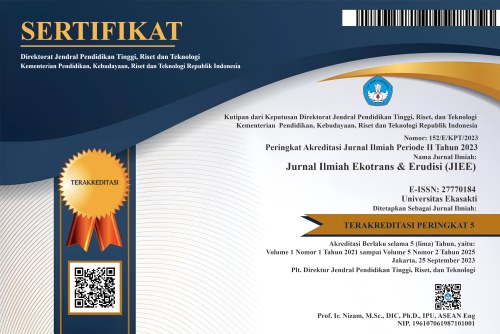Personal Data Protection and Disclosure of Information on Public Officials' Diplomas: A Legal Review in Indonesia
DOI:
https://doi.org/10.69989/0gt8q135Kata Kunci:
Diploma, Personal Data, Information Disclosure, Legal Protection, Public OfficialsAbstrak
The controversy surrounding the authenticity of President Joko Widodo's diploma has sparked a legal debate regarding the status of the diploma as personal data or public information. Diplomas contain identity information protected by Law Number 27 of 2022 concerning Personal Data Protection (PDP Law). Still, as documents related to public office, diplomas can also be considered relevant information for the public interest under Law Number 14 of 2008 concerning Public Information Disclosure (KIP Law). This study examines the legal status of diplomas about personal data protection and public information disclosure, employing normative legal research methods. The results indicate that diplomas are considered general personal data under the PDP Law, so their dissemination requires the consent of the owner. However, the KIP Law regulates limited access to diploma information when it relates to public office. Therefore, a balance is needed between protecting individual privacy and ensuring transparency of information in state administration.
Unduhan
Referensi
Cristóbal, R. S. (2015). The reduction of number of parliamentary members and the modification of remuneration schemes for deputies in autonomous community. Revista de Derecho Politico, 92, 73–118.
Docksey, C., & Propp, K. (2023). Government Access to Personal Data and Transnational Interoperability: An Accountability Perspective. Oslo Law Review, 10(1). https://doi.org/10.18261/olr.10.1.2
Fenster, M. (2006). The opacity of transparency. Iowa Law Review, 91(3), 885–949.
Green, D. (2025). Strategic Indeterminacy and Online Privacy Policies: (Un)informed Consent and the General Data Protection Regulation. International Journal for the Semiotics of Law, 38(2), 701–729. https://doi.org/10.1007/s11196-024-10132-4
Hsu, C.-S., Tu, S.-F., & Chiu, P.-C. (2022). Design of an e-diploma system based on consortium blockchain and facial recognition. Education and Information Technologies, 27(4), 5495–5519. https://doi.org/10.1007/s10639-021-10840-5
Jingbo, W. (2015). Weighing the Public Interest in the Disclosure of Government Information. Social Sciences in China, 36(3), 37–55. https://doi.org/10.1080/02529203.2015.1062228
Kirchhof, F. (2024). Transparenz – Segen oder Fluch für den Rechtsstaat? Zeitschrift Fur Die Gesamte Versicherungswissenschaft, 113(1), 1–9. https://doi.org/10.3790/zverswiss.2024.1430401
Rodríguez Sánchez, C. M. A. (2020). Two examples of claudican transparency: The protection of data and the secrets of state. Revista Espanola de La Transparencia, 10, 129–150. https://doi.org/10.51915/RET.80
Saleh, O. S., Ghazali, O., & Al Maatouk, Q. (2019). Graduation certificate verification model: A preliminary study. International Journal of Advanced Computer Science and Applications, 10(7), 575–582.
Sanz, R. M. (2017). Comparative analysis of public policies and best practices of transparency in Ecuador 2004-2014. Reforma y Democracia, 2017-Febru(67), 197–226.
Skinner-Thompson, S. (2021). Agonistic privacy & equitable democracy. Yale Law Journal, 131, 454–474.
Solove, D. J. (2024). Data Is What Data Does: Regulating Based on Harm and Risk Instead of Sensitive Data. Northwestern University Law Review, 118(4), 1081–1138. https://www.scopus.com/inward/record.uri?eid=2-s2.0-85183932494&partnerID=40&md5=dfe51da260c14635777d34093815f4d4
Torres-Hernández, N., & Gallego-Arrufat, M.-J. (2023). Pre-service teachers’ perceptions of data protection in primary education. Contemporary Educational Technology, 15(1). https://doi.org/10.30935/cedtech/12658
Trautendorfer, J., Schmidthuber, L., & Hilgers, D. (2024). Are the answers all out there? Investigating citizen information requests in the haze of bureaucratic responsiveness. Governance, 37(3), 845–865. https://doi.org/10.1111/gove.12805
Yin, W. (2023). Zero-Knowledge Proof Intelligent Recommendation System to Protect Students’ Data Privacy in the Digital Age. Applied Artificial Intelligence, 37(1). https://doi.org/10.1080/08839514.2023.2222495
Unduhan
Diterbitkan
Terbitan
Bagian
Lisensi
Hak Cipta (c) 2025 Robi Syafwar (Author)

Artikel ini berlisensiCreative Commons Attribution-ShareAlike 4.0 International License.
Copyright Notice
An author who publishes in the journal "Jurnal Ilmiah Ekotrans & Erudisi" agrees to the following terms:
Author retains the copyright and grants the journal the right of first publication of the work simultaneously licensed under the Creative Commons Attribution-ShareAlike 4.0 License that allows others to share the work with an acknowledgement of the work's authorship and initial publication in this journal
Author is able to enter into separate, additional contractual arrangements for the non-exclusive distribution of the journal's published version of the work (e.g., post it to an institutional repository or publish it in a book) with the acknowledgement of its initial publication in this journal.
Author is permitted and encouraged to post his/her work online (e.g., in institutional repositories or on their website) prior to and during the submission process, as it can lead to productive exchanges, as well as earlier and greater citation of the published work (See The Effect of Open Access).
All materials in this site are protected by the law. It is prohibited to quote a part of or all of this website contents for commercial purposes without the permission or consent of the editors.
If anyone finds one article or more in this journal violate or potentially violate one’s copyrights, please report to us through e-mail of Principle Contact.
Legal-formal aspects of accessing any information and manuscript in this journal website refer to the provision of license Creative Commons Attribution-Share Alike (CC BY-SA). Read more about the Creative Commons Attribution-ShareAlike 4.0 Licence here: https://creativecommons.org/licenses/by-sa/4.0/.
All information available in 'Jurnal Ilmiah Ekotrans & Erudisi' is academic in nature. 'Jurnal Ilmiah Ekotrans & Erudisi' is not responsible for loss due to the abuse of information in the website.
Information
Notice about change in the copyright policy of the journal 'Jurnal Ilmiah Ekotrans & Erudisi' : "From Volume 1, Nomor 1 onwards the copyright of the article published in the journal 'Jurnal Ilmiah Ekotrans & Erudisi' will be retained by the author"
Privacy Statement
The names and email addresses entered in this journal site will be used exclusively for the stated purposes of this journal and will not be made available for any other purpose or to any other party.



























